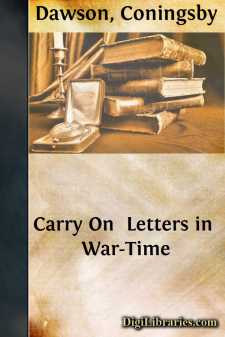Categories
- Antiques & Collectibles 13
- Architecture 36
- Art 48
- Bibles 22
- Biography & Autobiography 815
- Body, Mind & Spirit 144
- Business & Economics 28
- Children's Books 18
- Children's Fiction 14
- Computers 4
- Cooking 94
- Crafts & Hobbies 4
- Drama 346
- Education 58
- Family & Relationships 59
- Fiction 11833
- Games 19
- Gardening 17
- Health & Fitness 34
- History 1378
- House & Home 1
- Humor 147
- Juvenile Fiction 1873
- Juvenile Nonfiction 202
- Language Arts & Disciplines 89
- Law 16
- Literary Collections 686
- Literary Criticism 179
- Mathematics 13
- Medical 41
- Music 40
- Nature 179
- Non-Classifiable 1768
- Performing Arts 7
- Periodicals 1453
- Philosophy 65
- Photography 2
- Poetry 896
- Political Science 203
- Psychology 44
- Reference 154
- Religion 515
- Science 126
- Self-Help 85
- Social Science 82
- Sports & Recreation 34
- Study Aids 3
- Technology & Engineering 59
- Transportation 23
- Travel 463
- True Crime 29
Our website is made possible by displaying online advertisements to our visitors.
Please consider supporting us by disabling your ad blocker.
The Glory of the Trenches
by: Coningsby Dawson
Description:
Excerpt
HOW THIS BOOK WAS WRITTEN
In my book, The Father of a Soldier, I have already stated the conditions under which this book of my son's was produced.
He was wounded in the end of June, 1917, in the fierce struggle before Lens. He was at once removed to a base-hospital, and later on to a military hospital in London. There was grave danger of amputation of the right arm, but this was happily avoided. As soon as he could use his hand he was commandeered by the Lord High Commissioner of Canada to write an important paper, detailing the history of the Canadian forces in France and Flanders. This task kept him busy until the end of August, when he obtained a leave of two months to come home. He arrived in New York in September, and returned again to London in the end of October.
The plan of the book grew out of his conversations with us and the three public addresses which he made. The idea had already been suggested to him by his London publisher, Mr. John Lane. He had written a few hundred words, but had no very keen sense of the value of the experiences he had been invited to relate. He had not even read his own published letters in Carry On. He said he had begun to read them when the book reached him in the trenches, but they made him homesick, and he was also afraid that his own estimate of their value might not coincide with ours, or with the verdict which the public has since passed upon them. He regarded his own experiences, which we found so thrilling, in the same spirit of modest depreciation. They were the commonplaces of the life which he had led, and he was sensitive lest they should be regarded as improperly heroic. No one was more astonished than he when he found great throngs eager to hear him speak. The people assembled an hour before the advertised time, they stormed the building as soon as the doors were open, and when every inch of room was packed they found a way in by the windows and a fire-escape. This public appreciation of his message indicated a value in it which he had not suspected, and led him to recognise that what he had to say was worthy of more than a fugitive utterance on a public platform. He at once took up the task of writing this book, with a genuine and delighted surprise that he had not lost his love of authorship. He had but a month to devote to it, but by dint of daily diligence, amid many interruptions of a social nature, he finished his task before he left. The concluding lines were actually written on the last night before he sailed for England.
We discussed several titles for the book. The Religion of Heroism was the title suggested by Mr. John Lane, but this appeared too didactic and restrictive. I suggested Souls in Khaki, but this admirable title had already been appropriated. Lastly, we decided on The Glory of the Trenches, as the most expressive of his aim. He felt that a great deal too much had been said about the squalor, filth, discomfort and suffering of the trenches. He pointed out that a very popular war-book which we were then reading had six paragraphs in the first sixty pages which described in unpleasant detail the verminous condition of the men, as if this were the chief thing to be remarked concerning them....

















